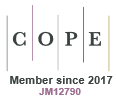Morphological and genetic relationships among populations of Scotorepens sanbomi (Chiroptera: Vespertilionidae) from Papua, New Guinea, Australia and Indonesia.
D.J. Kitchener and M. Adams
Australian Mammalogy
17(1) 31 - 42
Published: 1994
Abstract
Skull and external morphology and the genetic relationships of Scotorepens sanbomi individuals were studied for populations in Papua New Guinea, Queensland, Northern Territory, Western Australia and West Timor (a recently discovered population). Discriminant function analyses showed that animals from West Timor were large and similar in size and shape to those from Papua New Guinea and Queensland; their skull dimensions were closer to Queensland animals whereas their external dimensions were closer to Papua New Guinea animals. The West Timor, Papua New Guinea and Queensland animals were considerably larger in skull', external and baculum measurements than the Western Australian animals. The Northern Territory animals were intermediate, but closer to the Western Australian animals. The latter also showed some proportional (shape) differences from animals in these other populations. The largest animals (West Timor) had a relatively high wing loading and higher aspect ratio than the smallest (Western Australia) animals. This suggests that on West Timor the species forage in less cluttered airspace, probably higher above the vegetation, than their counterparts from Western Australia. Allozyme electrophoresis of 3lloci revealed considerable genetic heterogeneity between the populations (Nei Ds range 0.023- 0.158). The West Timor population was genetically most similar to the Western Australia and Northern Territory populations and most divergent from both the Queensland and New Guinea populations.https://doi.org/10.1071/AM94004
© Australian Mammal Society 1994


